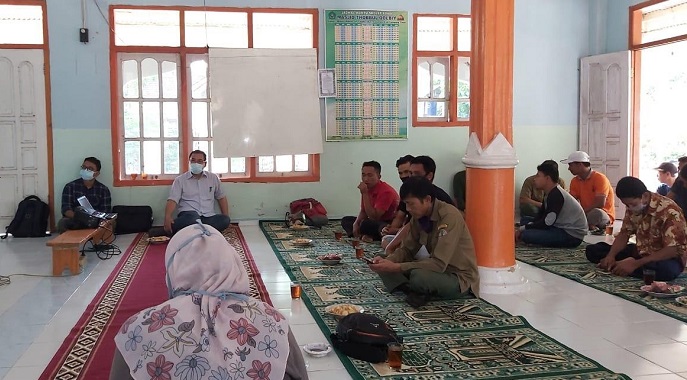The added value of utilizing waste at a company scale appears to be applicable on a smaller scale as well. For example, the circular economy concept of utilizing waste that has been carried out by Great Giant Foods (GGF), in addition to providing value to the company, also benefits the surrounding community.
Manure waste (cow dung) in the hands of experts can be more useful than just manure. In this case, the GGF Sustainability Team educates the public by training and introducing techniques for processing manure into biogas. The training was conducted at the Thobul Qolbi Mosque in Dusun I Rantaujaya Udik, Sukadana District, East Lampung Regency while still implementing the health protocol during the COVID-19 pandemic.
This training was opened by the Head of Region I Section of Way Kambas National Park, Bayu Aji Saputra, and was attended by 20 people from residents. The training on biogas introduction said GGF Assistant Manager of People & Community Sustainability, Gilang M. Nugraha, at the opening of the event as a means of sharing knowledge about biogas from cow dung that can be used by humans.
“Through this biogas introduction training, hopefully, there will be benefits of knowledge that can be learned by the community,” hoped Gilang.
Sustainability Project Expert Manager Julius Sugarjato as the speaker on biogas explained that cow dung that is not managed properly can cause health problems. That way, we must manage cow dung properly so that it becomes biogas, which is a gas resulting from fermentation activities from organic matter.
“The advantages of processing cow dung into biogas include getting an energy source or environmentally friendly fuel, the surrounding environment is clean and the residue of processing can be used as organic fertilizer,” explained Julius.
Meanwhile, Bayu Aji Saputra admitted that the activity initiated by GGF was very interesting and the material could be absorbed well by the community who are members of the Forest Farmers Group who are also assisted by the Way Kambas National Park area I.
“For the contribution of GGF, we would like to express our gratitude for educating the community about the introduction and use of biogas,” he explained.
Tumin, who is one of the training participants, admitted that after learning that cow dung can be processed to produce biogas, he and other residents are interested in building a simple installation made of cement, fiber, or plastic.

